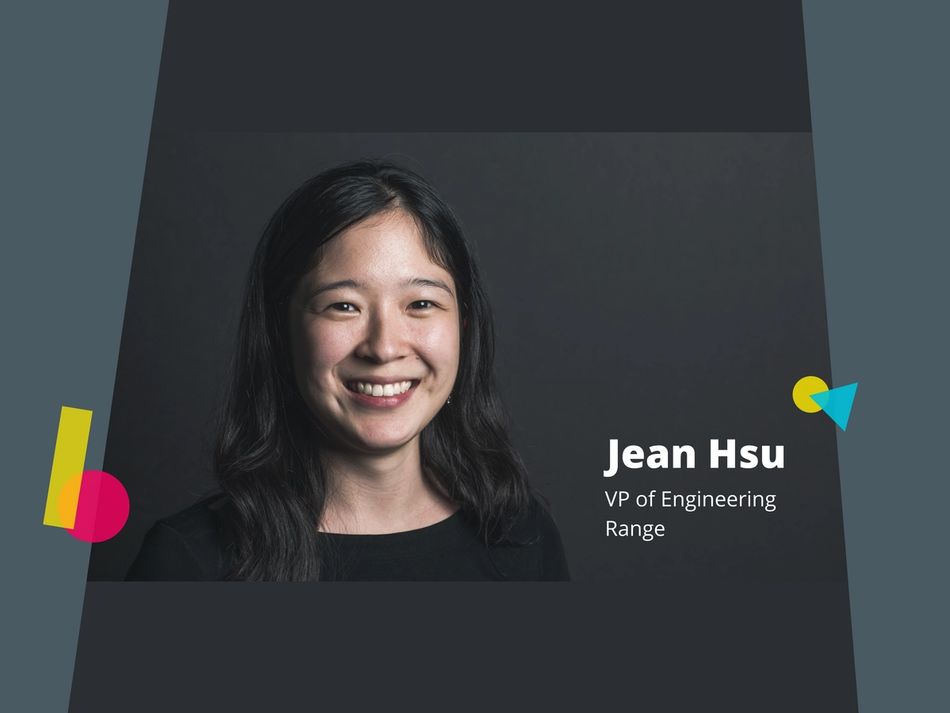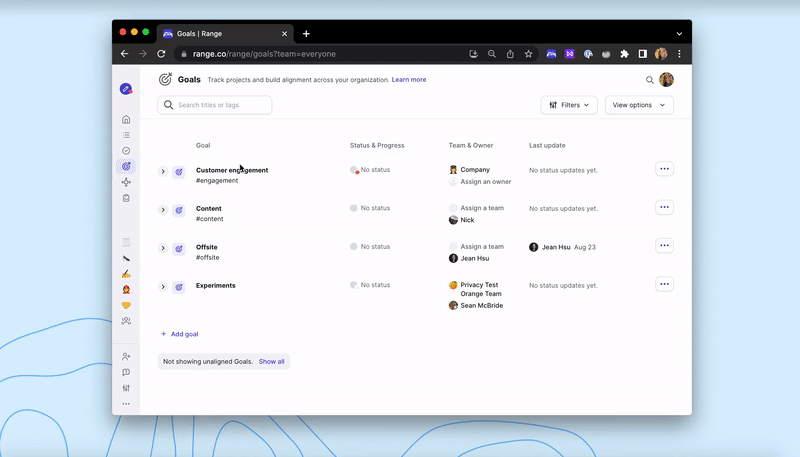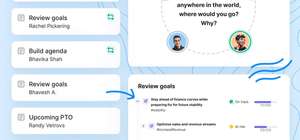
We’re just plain psyched to welcome Jean to the Range team. She’s worked with co-founders Jen and Dan at Medium and has both the outstanding leadership and engineering skills that we were hoping to find for such a critical role.
Jean’s spent the last three years coaching engineering leaders and building out a leadership development company for engineering leaders. With her deep understanding of the needs of product and engineering teams, we’re excited by how much value she can add not just to our own team, but also as an advocate for our customers. Few engineering leaders bring as much insight into the ingredients of team effectiveness.
To get to know Jean a little better, we asked her to answer a few questions about why she decided to join Range.

After starting Co Leadership, your own leadership development company, what made you go back into software development?
As I was interviewing some remote work experts for Co Leadership’s online course on Building Alignment, hearing them talk about how rewarding it was to build teams, grow people, work collectively on building out their product — I realized how much I missed it, and how I wasn’t done being in it. I wasn’t done being on a team — building, shipping, supporting people.
When I left Medium over 3 years ago, I left a really closely-knit group of engineering leaders. I had really honed my style of people leadership at Medium, working with Dan on the engineering team — I always had in the back of my mind that down the road, our paths may meet again.
With Co Leadership, we run programs internally at companies and independently — and people walk away from our workshops and courses thinking about themselves and what leadership means completely differently. I love that work — but I also missed being deeply embedded in a team. Seeing and working with the same people week after week, building products and working together towards shared goals.
After having worked at big and small companies, why did you choose to join Range?
What Range does — helping teams be successful and effective — is incredibly valuable, and something I’ve tried to do with every team I’ve been part of. It provides that ambient layer of context you would more implicitly absorb in an in-person office — being able to see who’s having 1:1s with who in the conference rooms, lunchtime casual conversation, walking through the office and seeing in-progress whiteboards. Especially as more teams are remote (and also when more teams are hybrid) — Range is a really easy way to intentionally build that ambient layer of context. What’s that other team working on? What sorts of meetings are happening in Sales? It makes it easy to do that by just following the default prompts and nudges within Range — and collectively it builds up this really rich ongoing layer of information.
I love that I can work at Range to help build out the product and engineering team (already super fulfilling work for me) — and then on top of that, through the product, help countless other teams work together more effectively through building alignment and connection. Range is clearly the obvious tool teams need now more than ever to keep in sync and build team alignment. It seems unimaginable and incredibly inefficient that teams — especially now, working remotely — are functioning without Range.
I’m also particularly excited about this role and Range because there are so many opportunities for me to delve into what I love to do — a mix of hands-on coding, building and supporting teams, product work, coaching, facilitating, and writing. I also hope to use all I’ve learned about the needs of product and engineering teams to help inform and shape our product direction.
How have you come to understand what engineering leadership means, for you and the teams you lead?
People and relationships are the core of everything. The tech industry has a lot of unevenly distributed opportunities, biases, and dysfunctions — but I’ve just tried to show up as a leader in a way that I feel proud of. Success for me is to be the type of leader that people want to work with again and again. That means spending the time to understand what’s important to people, investing in relationships, helping them grow — and what’s great (and often misunderstood) is that that time spent is not just “nice-to-have,” it’s actually how you get the best out of people as well and build thriving teams.
For example, one time, progress on a team was going pretty slowly. Sprint after sprint, we tried to debug what was going on — the PM and I tried to make the tasks more granular, assigning “points” and setting realistic goals for the number completed of points. Things continued to slow to a halt — and the team was visibly not performing well.
We made a bunch of changes — reorganized the teams, re-focused on what the high-level product goals, gave some high-performing junior engineers more ownership and accountability over their areas, and saw a huge improvement.
You can’t get more productivity out of engineers by treating them or debugging them like code machines. In my experience, I’ve found that a motivated engineer on a team that’s working well together, who feels supported and challenged by their manager, can easily have 10x capacity than when that same engineer is unmotivated, misaligned or doesn’t understand what they’re working towards.
Figuring out what’s important to someone (and what motivates them), and helping them work towards it is crucial!
I see Range as a simple and intentional way for teams to both stay in sync and learn more about what’s important to the people they work with — which just leads to more effective teams.
What do you see for the future of the way the team effectiveness space is evolving?
When I started coaching engineers and engineering leaders 3 years ago, it was still a relatively new concept in companies. Coaching was mostly reserved for C-level executives. Over the last few years, I’ve really seen the demand for coaching and training (and companies’ willingness to invest in those) among mid-to-senior level employees increase. But those solutions can often feel very isolated and focused on individuals, rather than teams.
As companies realize that average employees collectively have a huge impact, we’re seeing tools move value directly to managers and teams, rather than limiting them to individuals.
The space is evolving really rapidly, and I think Range occupies a unique place because we span collaboration, communication, and engagement in a way that moves work forward. As teams continue to figure out ways to work more effectively when remote, asynchronous communications are being seen as a superpower for successful teams. And everyone is starting to really understand how much culture is so critical to every aspect of work. Rather than having every team figure it out from scratch, why don’t we integrate strengthening culture into our tools in easy and elegant ways? Range has cracked that, and there’s much more to come. We have a really solid product roadmap, and I’m looking forward to talking to our customers and getting a sense of what will make their teamwork better.








